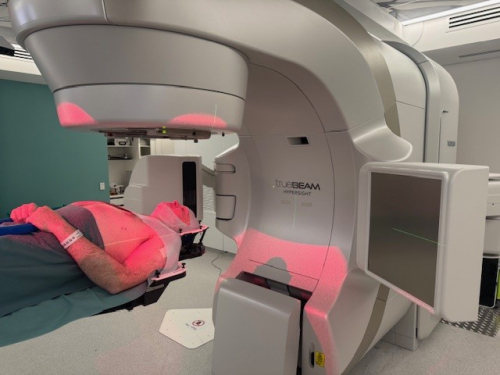New tablet treats hayfever and thunderstorm asthma

A tablet used to treat chronic hayfever could protect sufferers from future thunderstorm asthma events, researchers at The Alfred have found.
In November 2016, storm conditions in Melbourne caused rye grass pollen to swell and explode, enabling tiny fragments to become lodged deep in people’s airways.
Thousands of Victorians with an allergy to ryegrass pollen – known as seasonal allergic rhinitis or spring hayfever - developed asthma symptoms and were left struggling to breathe as their bodies produced an inflammatory allergic reaction to the tiny fragments of rye grass pollen in their lungs. Nine people died as a result of the catastrophic event and 8500 presented to hospital emergency departments.
In a recent paper published in top international respiratory journal, American Journal of Respiratory and Critical Care Medicine, researchers discovered that patients in their immunotherapy trial who were chronic hayfever sufferers did not develop asthma symptoms during the storm, when it was expected they would have.
The patients had undergone between two and three short courses of sublingual immunotherapy Oralair® to treat their hayfever prior to the 2016 Thunderstorm Asthma event. The treatment desensitised the patients to rye grass pollen and protected them from developing thunderstorm asthma symptoms during the storm.
Robyn O’Hehir, study lead and Professor/Director of Allergy, Immunology & Respiratory Medicine at The Alfred/Monash University, said sublingual immunotherapy is an allergy treatment that involves giving patients small doses of an allergen under the tongue to boost their tolerance to the substance and reduce symptoms. In this trial, the patients were given small doses of ryegrass pollen.
“We know this treatment has significantly improved the lives of patients who suffer from chronic hayfever – some experienced such severe symptoms that they were afraid to go outside in spring,” Professor O’Hehir said.
“To know that it also protects patients against thunderstorm asthma makes this a very worthwhile treatment.”
Oralair® is not available on the PBS. If you would like to find out more, discuss with your GP or obtain a referral to The Alfred Allergy, Asthma & Clinical Immunology Clinic.


